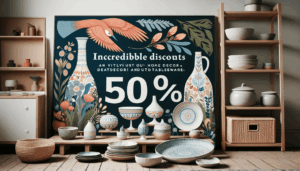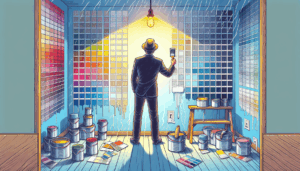More and more people are looking for innovative ways to reduce their ecological footprint and contribute to environmental conservation. A trend that has gained popularity recently is the reuse of materials in gardening with the goal of creating more sustainable and creative green spaces. This practice not only promotes recycling, but also challenges the imagination of gardeners.
Among the most original ideas is the use of everyday objects that would normally be discarded. For example, plastic bottles, which many consider an environmental problem, can be transformed into hanging planters. By making strategic cuts and decorating them with eco-friendly paint, these bottles find a second life in the garden, adorning walls and fences with floral plants or even aromatic herbs.
Another innovative proposal is the use of old tires as plant containers. By painting and stacking the tires, multi-level planters are created that are not only visually attractive, but also make use of a sturdy and durable material. This approach has been well received in urban communities where space for horizontal gardens is limited.
As for wooden pallets, those commonly used for transporting goods, have become true allies of garden enthusiasts. Converted into vertical gardens and fixed to walls, they allow for the creation of vertical gardens ideal for growing ornamental plants or even small urban orchards. Treated properly, wood withstands the elements and adds a rustic and cozy touch to the environment.
An additional component that many have begun to reuse are kitchen containers that are no longer in use, such as teapots, pots, and cans. With a bit of creativity, these objects add a vintage and quirky touch to any garden. They are especially useful for succulents and small flowers, offering a simple solution for water drainage as well.
No less important are old furniture, such as chairs and tables, which when given a little love and eco-friendly paint, transform into functional decorative elements for the garden. Chairs can become plant pot supports, and tables can become work surfaces or plant displays.
This ecological approach not only promotes recycling and reuse, but also fosters a mindset of responsible and creative consumption. By opting for sustainable solutions, gardeners not only beautify their spaces, but also positively contribute to the environment. Ultimately, reusing materials for gardening purposes is a trend that reflects society’s growing commitment to more environmentally friendly and responsible practices.
Referrer: MiMub in Spanish









